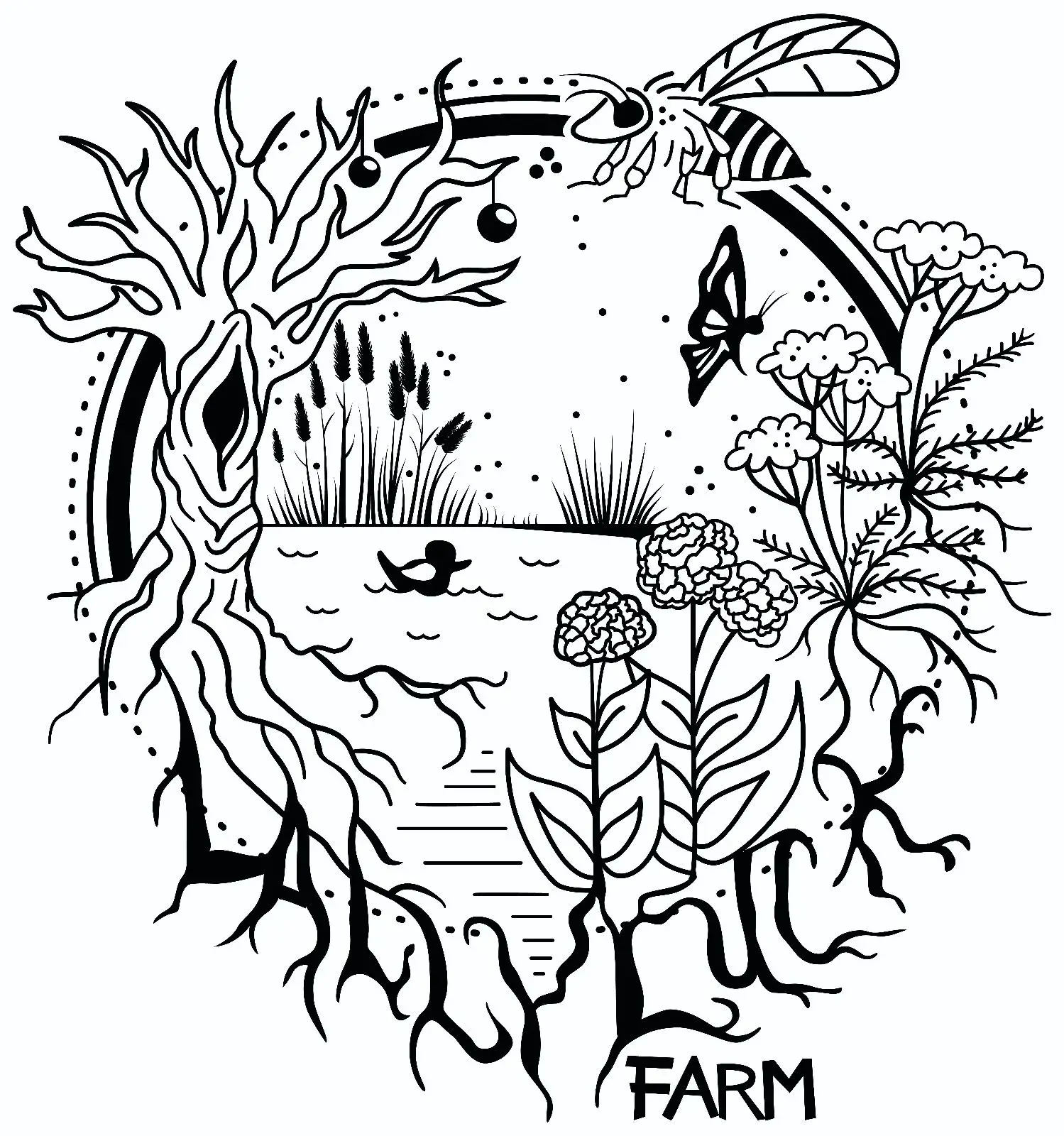this is a sort of novel follow up to a question i asked previously, which was your opinion on right of nature laws, which recognize natural entities as having “personhood” or legal rights comparable to humans. Berry was a theologian who wrote extensively on the rights of nature and ecology generally. one of his lasting works are his 10 principles as enumerated in The Origin, Differentiation and Role of Rights, which are:
- Rights originate where existence originates. That which determines existence determines rights.
- Since it has no further context of existence in the phenomenal order, the universe is self-referent in its being and self-normative in its activities. It is also the primary referent in the being and activities of all derivative modes of being.
- The universe is a communion of subjects, not a collection of objects. As subjects, the component members of the universe are capable of having rights.
- The natural world on the planet Earth gets its rights from the same source that humans get their rights, from the universe that brought them into being.
- Every component of the Earth community has three rights. The right to be, the right to habitat, and the right to fulfill its role in the ever-renewing process of the Earth community.
- All rights are species specific and limited. Rivers have river rights. Birds have bird rights. Insects have insect rights. Humans have human rights. Difference of rights is qualitative not quantitative. The rights of an insect would be of no use to a tree or fish.
- Human rights do not cancel out the rights of other modes of being to exist in their natural state. Human property rights are not absolute. Property rights are simply a special relationship between a particular human “owner” and a particular piece of “property” for the benefit of both.
- Species exist in the form of individuals and groupings–flock, herds, schools of fish and so forth. Rights refer to individuals and groupings, not simply in a general way to species.
- These rights as presented here establish the relationships that the various components of the Earth have toward each other. The planet earth is a single community bound together with interdependent relationships. Every component of the Earth community is immediately or mediately dependent on every other member of the Community for the nourishment and assistance it needs for its own survival. This mutual nourishment, which includes predator-prey relationship, is integral with the role that each component of the Earth has within the comprehensive community of existence.
- In a special manner humans have not only a need for but a right of access to the natural world, not only to supply their physical needs but also to provide the wonder needed by human intelligence, the beauty needed by human imagination, and the intimacy needed by the human emotions.

I like this, and I’ve been meaning to read Berry for a while. I argued last year on reddit that animals have natural rights just like people do, and got no end of flak for it. It made me feel a little crazy to be so alone in something so obvious, so I’m glad to see there’s a strongly document philosophical precedent.
I was also observing earlier this week that lemmy is lacking in discussions of philosophy and theology, so I’m especially happy to see this discussion pop up now.
Personally, I’m finding the above summary a little hard to follow, which makes me hesitate to discuss it until I’ve had the chance to read it in context. All the same, thanks for posting!

I wish there was more theology on here honestly. Too much “did nobody tell you skydaddy not real?”

Sounds like we should start a theology muni, but IDK what instance would be best. Is there one more oriented towards philosophy or metaphysics or mythology already?
Edit: mander.xyz and kbin.social both have folklore munis, so maybe one of them. I’ve been kind of meaning to make an account on mander anyway.
Second edit: There’s !theology@lemm.ee but it’s dead, and it looks like mander is probably not a good fit. Iunno.

This reminds me of Derrick Jensen’s 20 premises in his book entitled: Endgame, Vol. 1: The Problem of Civilization.
The premises are here.

These type of thoughts are the kind that could only come to somebody when they’re tripping balls and/or in serious harmony with nature.
In all seriousness, the first principle makes me think of the many religious people who attribute rights to a god figure or figures. In the religion I grew up in, god was the figure who gave specifically white men certain rights. He is also the one who determined what rights many people didn’t have. I personally find comfort in the second principle, that the universe is “self-referent in its being and self-normative in its activities”.
Principle five seems ambiguous about the “roles” of Earth’s subjects. I think that’s where many people would disagree with one another, since certain roles are subjective (ex: in national conflict, hunting animals, natural resource extraction/usage).
The last principle really makes me appreciate our relationship with the universe and what humanity is capable of, despite how dire existence in our world often feels.

Not gonna lie, I’m excited to see it as a way of defending ecosystems but from a conceptual perspective it feels… strange to me. Maybe because I struggle with the idyllic idea of ecosystems as inherently harmonious and kind. Or the awkwardness of thinking about the “legal responsibility” of other invasive species. Mostly I feel stuff moving inside my mind to make space for this idea. Very thought provoking and a useful device to restrain ourselves as a species, which may be necessary for our survival.
Also somehow I think my cat is already well informed about his rights.

- 7] property right describe the relationship between humans. Owning something means nothing if noone can take it from you. Property is an object, what mutual benefit?
- 3] cancer cells aren’t subjects, no rights for them.

My take on #7 is that while “property rights” are a human construct, there’s an implied stewardship relationship between a property and its “owner” in these principles, rather than one based on classically understood dominion. The human in the relationship receives a combination of security, food, beauty, emotional support, health benefits from communing with the soil, and other yields. At the same time, the lives of everything else on the property can benefit from the stewardship of the human - whether it’s management of detrimental plants, additional food or habitat for any/all orders of life, improved sequestration of water and/or carbon, or more. To me, “property” here is a sort of shorthand for all of the entities whose existence plays out between arbitrary human made lines.
cancer cells aren’t subjects, no rights for them.
Firmly agreed

I wasn’t familiar at all, but these principles closely mirror how I structure my interactions with the natural world (@SmoochyPit: “hey, I resemble that remark”).
For me, at least, principles 3, 5, 7, and 9 resonate most strongly. The others are no less important and I’m glad for their inclusion, but they feel like logical conclusions to come to if one is adhering to the four principles I noted. That’s an entirely subjective understanding of them, and I’ll be interested to see how other folks approach this.
Thanks for sharing this

1 is kind of nice as it shows the existence of a God-given objective morality. I think it makes sense as things having rights in a way, as it’s moral to kill animals for food but not to torture them, if that makes sense. While you can “torture” a river to harvest energy, but you cannot dry it up completely and starve the land.

A question to consider, in the frame-of-reference of these 10:
What are the rights of rabies-virus?
It is a form of life, so it must have rights, then, yes?
Smallpox?
Ebola?
Bloodworms?
Cancer?
Malfunctions happen, chaotically: including malfunctions in genetics, in evolution, in ecology, etc.
Sometimes correction is required.
Within an individual, within a population, or within an entire-ecology.
This 10 doesn’t allow that.
( also, it is life, not existence, which is the fundamental-validity: lumps of lead exist, they aren’t living )
just the opinions of an autistic rando, is all:
pay no attention to meanings of mine.

